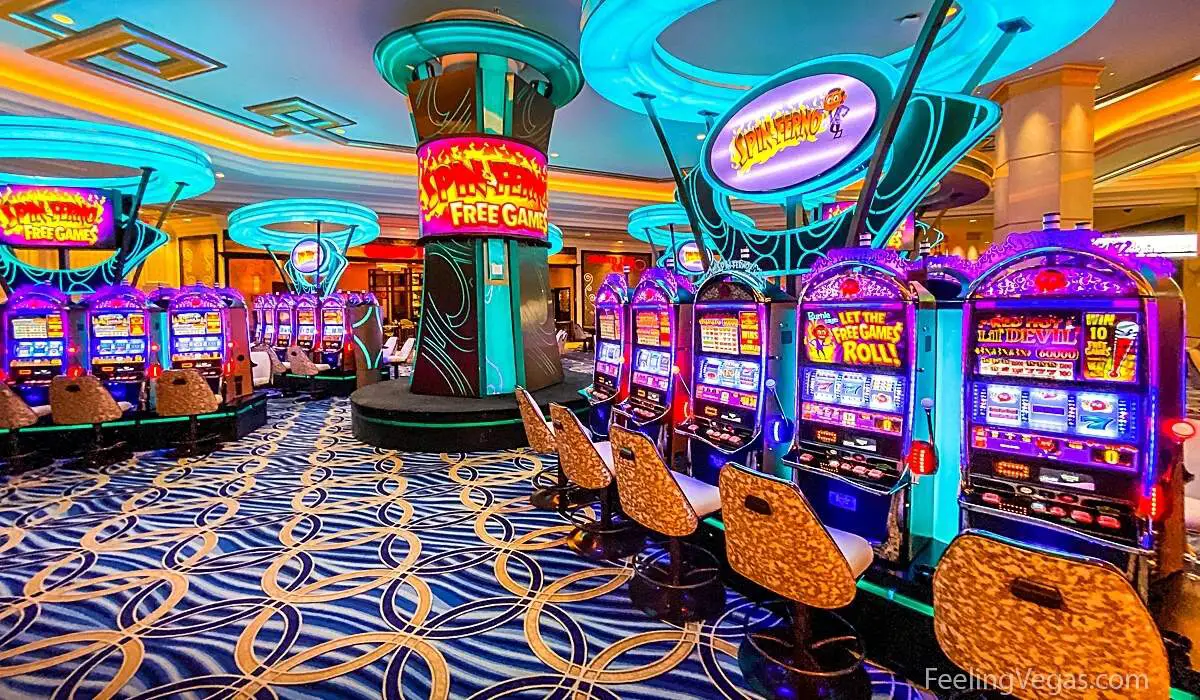
Casino games have captivated for years various types of players, providing not only excitement through chance but also a tailored experience designed for various types of players. Including strategic players who excel at calculation and skill to recreational players seeking entertainment, casinos recognize the subtleties of their audience and develop games that cater to these diverse interests.
In exploring the world of casino games, we encounter a rich tapestry of game types that interest players of all kinds. Poker tables with high stakes entice those who are competitive, while vibrant slot machines draw in those seeking quick rewards. Whether it’s about the lure of winning large or simply enjoying the community feeling, casinos tailor their game offerings to ensure that everyone can find their niche that feels comfortable and engaging. Recognizing how these games cater to various player types can enhance not only our understanding of them but also our approach to choosing which games to play.
Comprehending Gamer Categories
In the varied world of gaming games, gamers can be grouped into specific categories based on their incentives and preferences. These gamer types range from the laid-back and communal gamers, who enjoy the fun value and social interactions that gambling provides, to the more strategic and methodical players, who seek to maximize their odds and gains. Comprehending these different categories is essential for casinos to tailor their games and create immersive settings.
One frequent type is the communal player, who considers casino games as a form of group interaction and entertainment rather than a high-stakes gambling pursuit. These gamers often enjoy games that encourage involvement and togetherness, such as poker. Their emphasis is on the process rather than the outcome, so dynamic settings and collective moments are what they hold dear the most.
On the other end of the range, strategic players are inspired by competition and the search of ability. They tend to gravitate toward games that require strategic thinking and strategy, such as blackjack, where their competencies can affect the result. This kind often involves with the games on a more profound level, utilizing knowledge and tactics to achieve an edge. Comprehending these motivations allows casinos to build settings and game selections that cater to each gamer’s individual preferences.
Game Design Strategies
Gambling games are designed with diverse player types in mind, utilizing multiple strategies to attract and capture them. For casual players, the focus is on simplicity and clarity. Games like slot machines are frequently aesthetically pleasing with straightforward mechanics. This enables players to enjoy the experience without a steep learning curve, creating an inviting atmosphere. The bright colors, engaging audio, and thematic elements create a fun environment where players can quickly get immersed and enjoying themselves.
For strategic players who enjoy a deeper level of engagement, games such as Texas Hold’em and blackjack offer depth and skill-based elements. These games feature strategy and decision-making, appealing to players who excel on competition and want to exercise their cognitive abilities. The design of these games often includes complex rules and mechanics that test players to hone their skills and develop strategies over time, creating a rewarding experience for those who appreciate perfecting the game.
Moreover, community-oriented players are catered to through games that emphasize interaction and community. This includes live casino options and multiplayer formats, which cultivate a sense of community among players. The design of these games typically incorporates communication tools and social elements, allowing players to connect and exchange insights. By creating an environment where participation is promoted, casinos can effectively engage community players, making the gaming adventure more pleasurable and unforgettable.
Enhancing Participant Experience
Betting options have advanced considerably to create a more entertaining experience for participants. Software designers focus on stunning visuals, dynamic soundscapes, and innovative gameplay mechanics that pull players into the casino atmosphere. non UK casinos site By employing digital advancements, such as VR and enhanced reality, betting houses ensure that gamers feel as if they are part of a dynamic environment, enhancing not just the fun of the games but also the complete satisfaction of being in a gambling venue.
Social interaction is another critical factor in improving participant engagement in betting games. Several options are developed to facilitate engagement among participants, whether through multiplayer modes or social tools. This interactive component appeals to gamers who enjoy connecting with other participants while engaging, promoting a sense of community. In addition, social features can feature ranking systems, tournaments, and incentives for team engagement, which attract ambitious players and inspire them to revisit for further.
Finally, customization plays a vital role in customizing the interaction for diverse participant categories. Casinos and title creators analyze player behavior and preferences to present personalized gaming recommendations and rewards. By comprehending the individual interests of participants, betting venues can present personalized deals, incentives, and new game releases that appeal to each gamer, thus boosting their overall satisfaction and commitment to the casino.